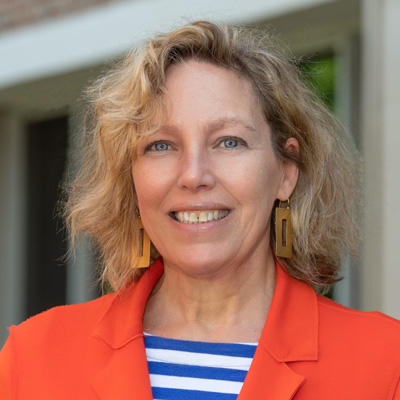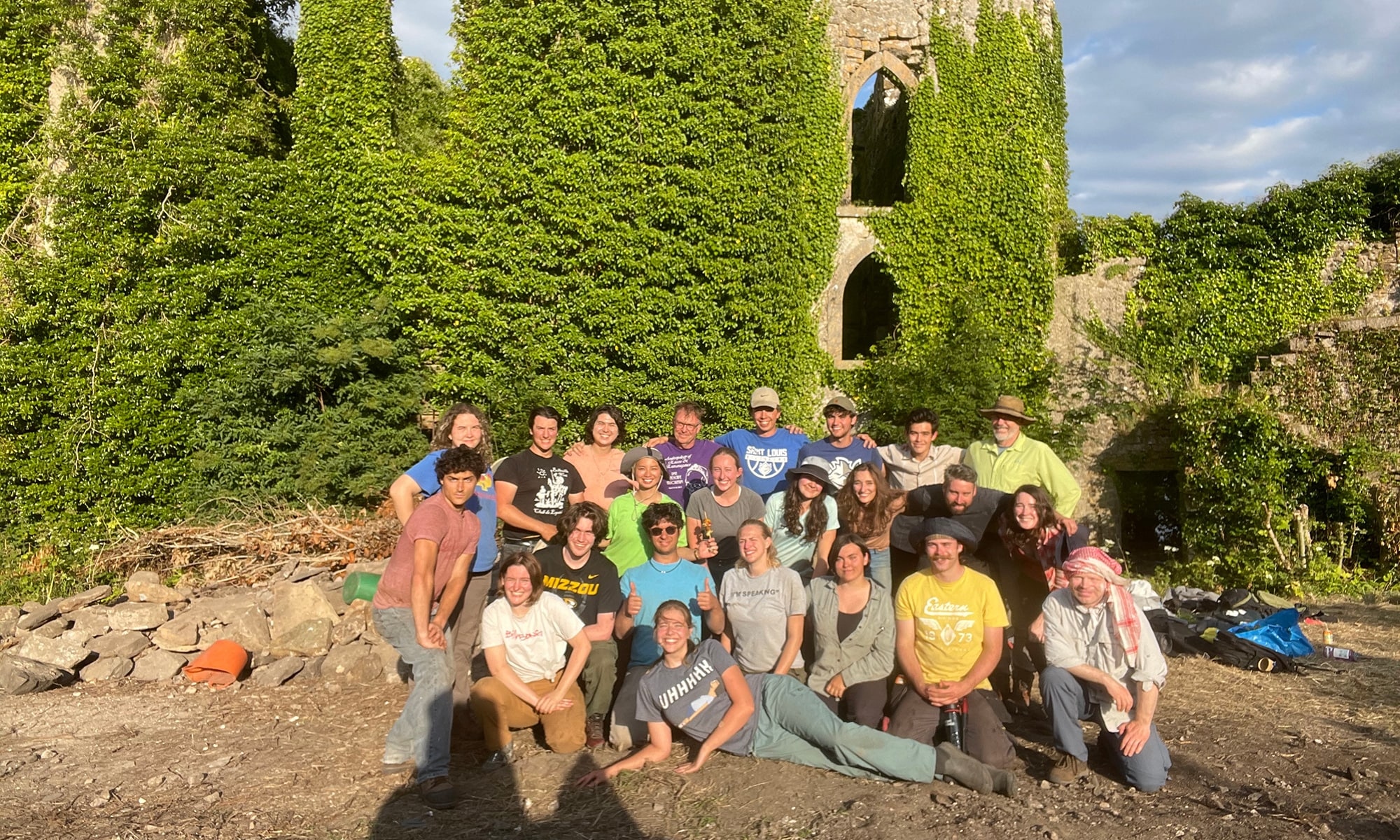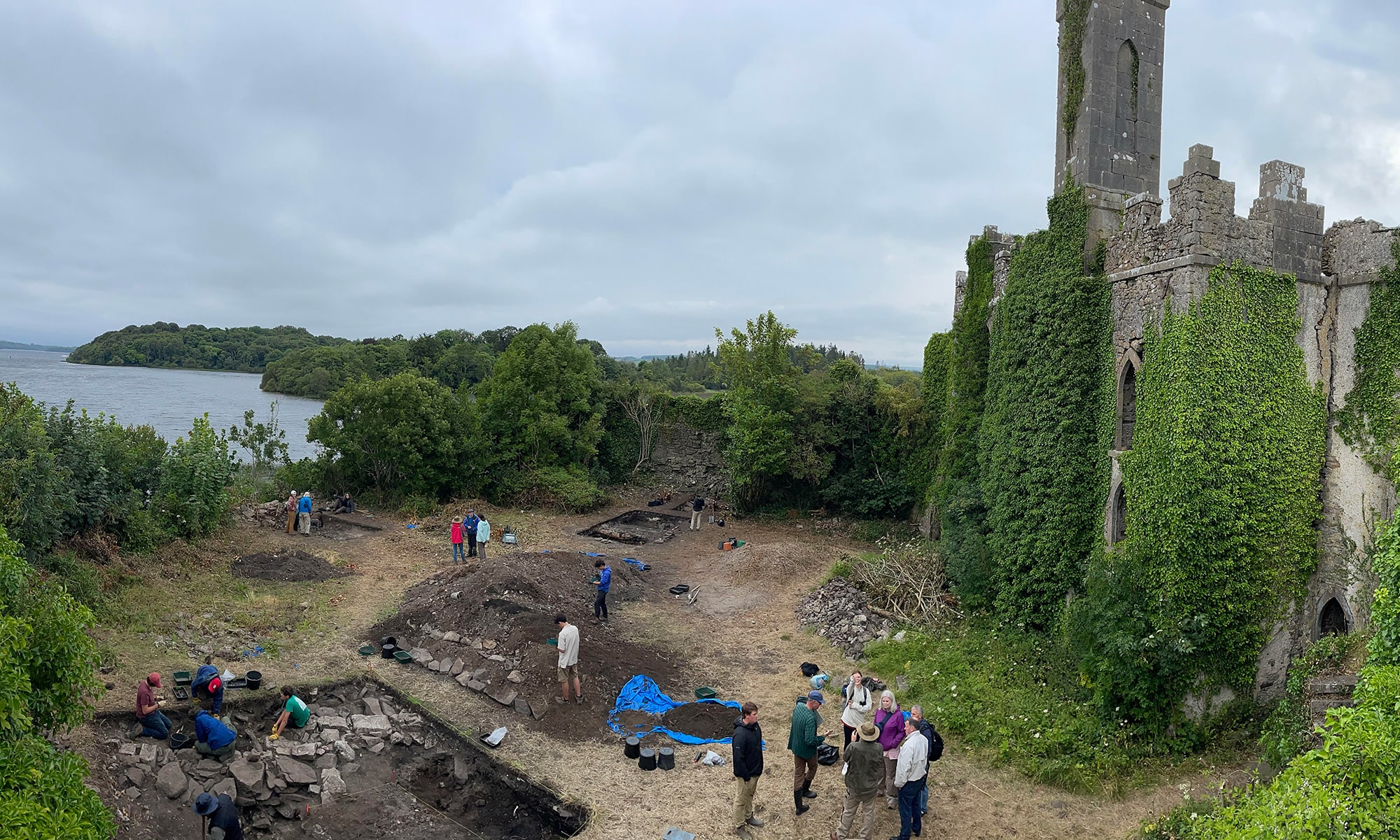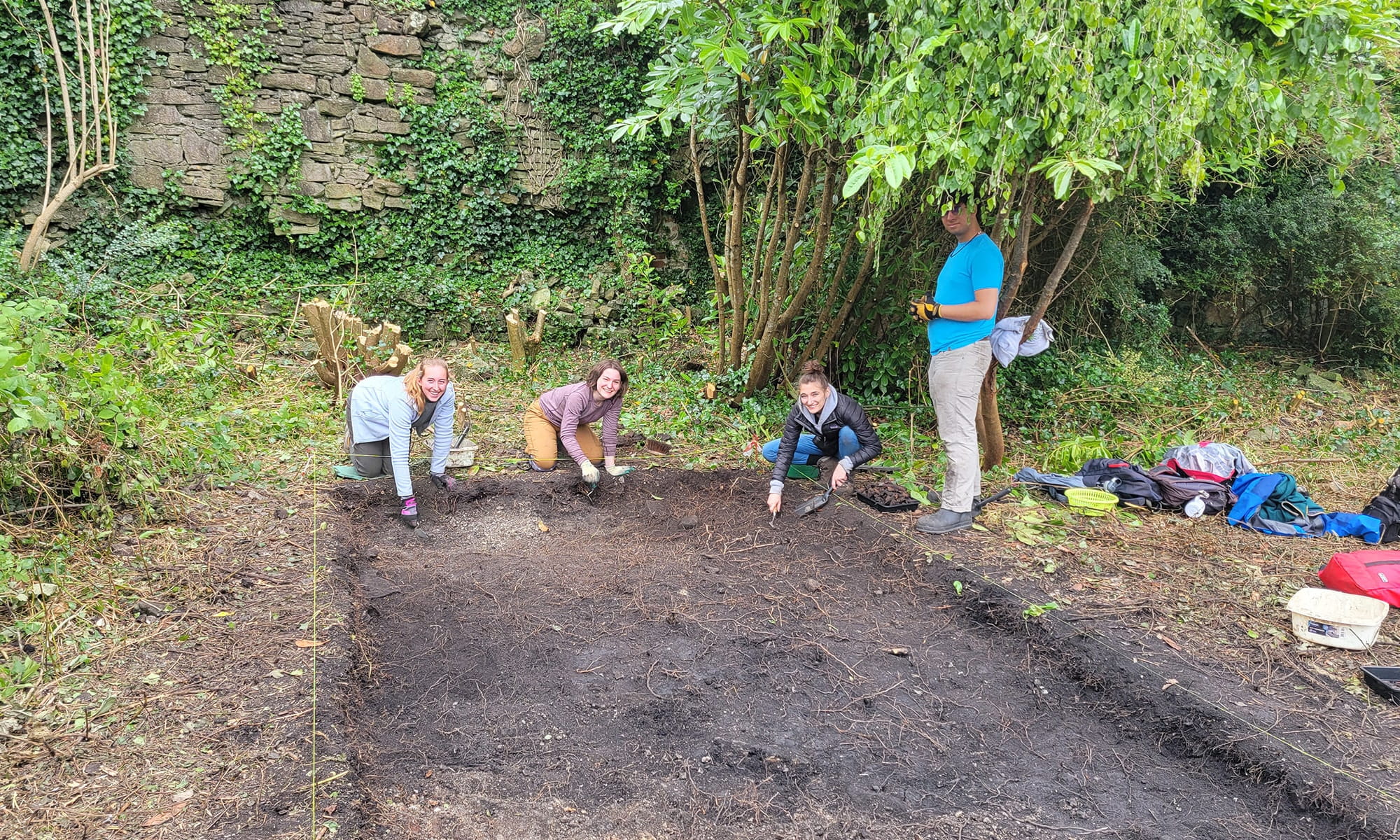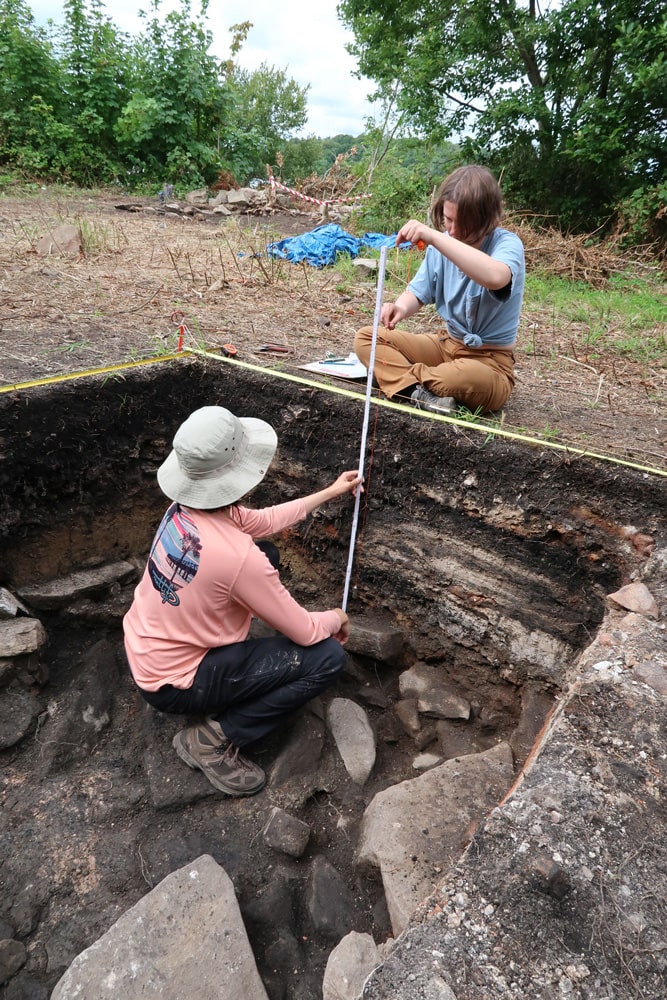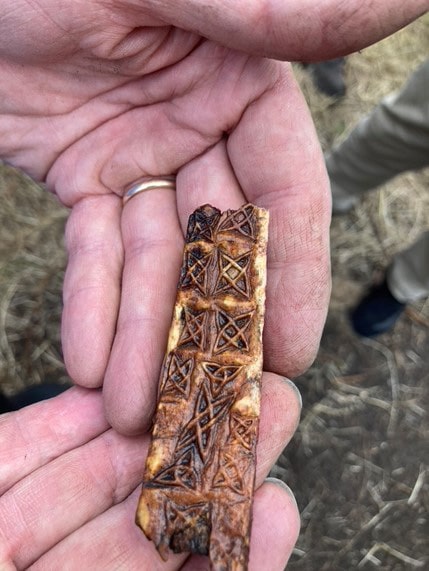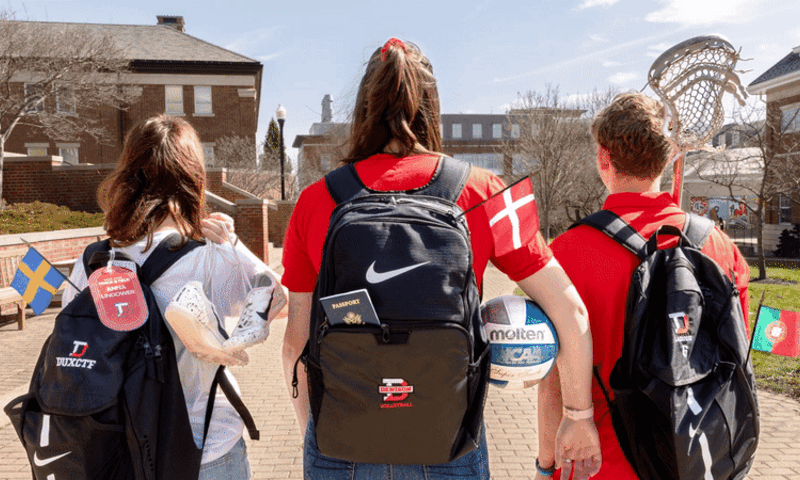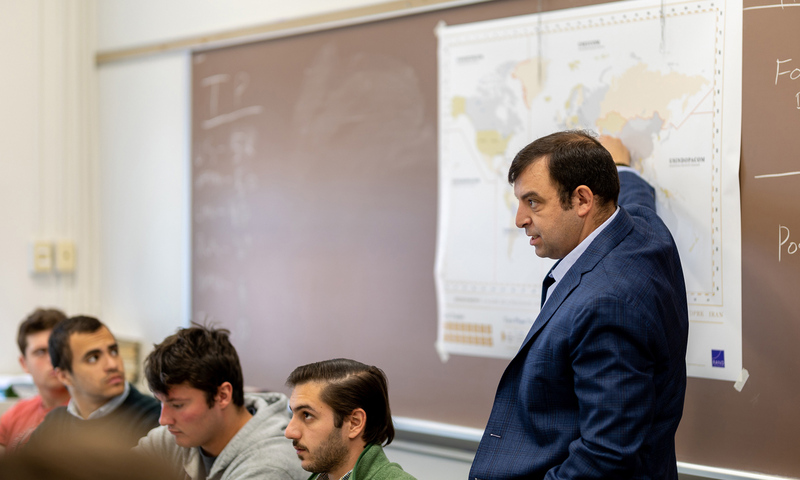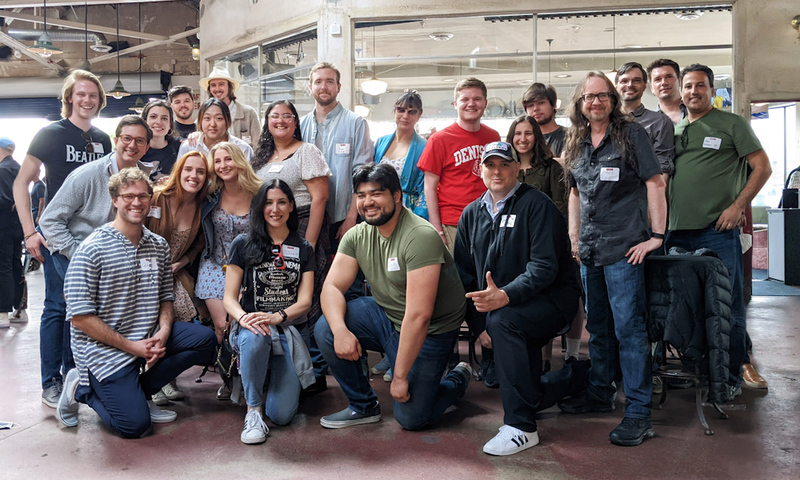During the summer of 2022, assistant professor John Soderberg led seven student archaeologists to Ireland for what can only be called a magical experience. Their mission: solve the mystery of McDermott’s Castle, a romantic ruin that has puzzled archaeologists for decades.
McDermott’s Castle, built in the 1800s and located on the pragmatically named Castle Island, is a spectacular landmark on Lough Key in northwest Ireland. But local lore indicates the island was once the site of a much older castle, perhaps dating back as many as seven centuries earlier.
After years of excavations, Soderberg’s close colleague, Saint Louis University professor Thomas Finan, confirmed the remains of a medieval settlement that matched the legends. At Finan’s invitation, Soderberg and his students joined the expedition to learn about life in 12th century Ireland - and something about 21st century Ireland as well.
“One of the amazing things about these sites is the moment when you realize you are touching something that hasn’t been touched in more than a 1,000 years,” Soderberg says. “It’s like you’re connecting with another human from a millennium ago.”
The caliber of the project was another enticement. McDermott’s Castle may be the best site in Ireland to study this medieval period, Soderberg says: “The quality is just extraordinary.”
Why should you study abroad? And how can you pay for it?
Studying abroad is a unique learning experience. In addition to academic knowledge, traveling and living in another country brings less obvious benefits. Students gain resilience and self-confidence as they negotiate new countries, languages, and cultures. And global competence opens many career doors.
Denison partners with more than 250 programs all over the world for traditional study abroad semesters. Students can also study abroad through summer research, as Emma Margo did, and Denison Seminars have off-campus or study abroad experiences built into the courses. The Lisska Center’s summer scholar program and a grant from Denison’s research foundation provided the funding for Soderberg, Margo, and her fellow students to experience Ireland and its people through a very unique lens. Stipends such as these are available to help fund internships and research opportunities for Denison students and faculty across the globe.
For anthropology and sociology major Emma Margo ’23, the monthlong venture was both her first foray out of the country, and her first archaeological experience.
“I know it’s clichéd,” she says, “but it was so life-changing.”
Margo and her fellow archaeologists sifted through layers of history, uncovering personal items such as gaming pieces and dress pins. The crew created a blueprint of the castle as they matched items to functional locations. On one of her final days on the site, Margo and her partner were thrilled to find a Celtic cross engraved in stone, perhaps pointing to the location of a chapel.
“We found so many items — coins, dice, beads — but I didn’t think we would find something that was part of an actual structure,” she says.
They also discovered hundreds of animal bone fragments, including an unusually large number of equine shards. “We found evidence of many more horses than we thought,” she says, “which triggered a bunch of questions, like what kind of people were visiting the castle.”
You can learn a lot from bones, says Soderberg, whose archaeological specialty is zooarchaeology, the analysis of faunal (animal) remains. Faunal bones can paint a surprisingly detailed picture of diet, agricultural processes, climate, and even the economy, he says.
As Margo learned archaeological skills, she gained some everyday life skills as well. She learned how to get around in another country, and how to shop and cook on a budget.
She also soaked in the local atmosphere. “The owner of the island, who was a soap opera actor at one time, invited everyone to a pub full of older Irish guys singing folk songs,” Margo says. “I even got up and danced.”
The experience solidified her plans to pursue a career in zooarchaeology. “This career is more accessible than you would think,” she says.
Soderberg agrees, pointing to examples of recent Denison graduates working as archaeologists, surveying potential sites for energy companies and other proposed developments. Every time federal funding is part of a development project, he says, an archaeological assessment is required aspart of an environmental impact survey.
But he confesses he’s worried that he may have ruined (pun intended) his students for future archaeological projects. “Because it’s the most interesting site I’ve been on in 30 years!”
Fortunately, Soderberg received funding to return to McDermott’s Castle in 2023, with five Denison students joining him for another unforgettable adventure.
